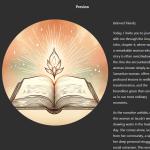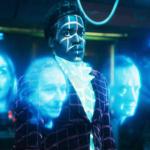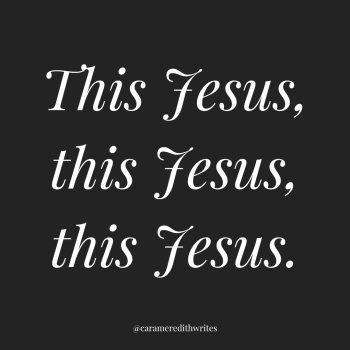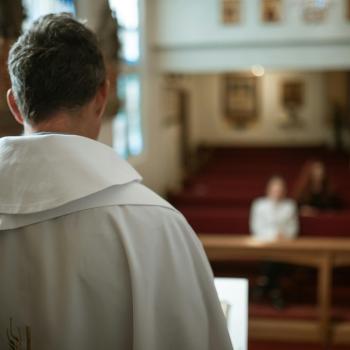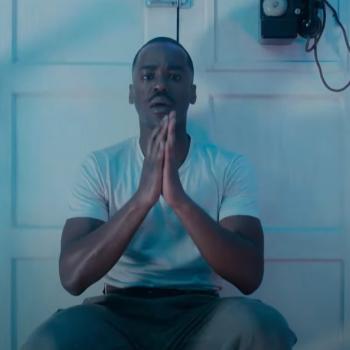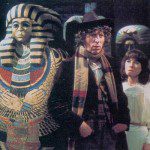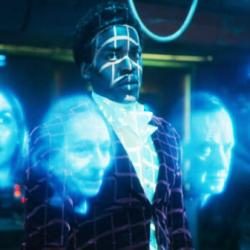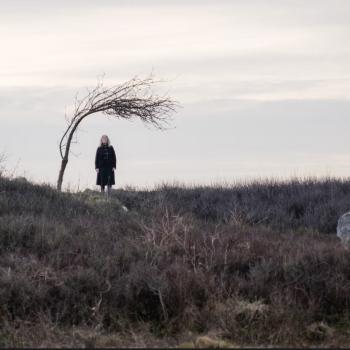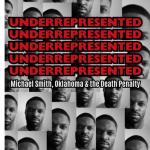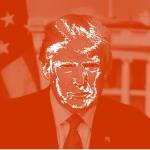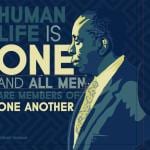There’s always a Twist at the end and this episode of Doctor Who, “Dot and Bubble,” is no exception. (And, as many fans and now the characters on the show have been noticing, there is also Susan Twist in each episode). But in the narrative sense, this is an episode that explores a fascinating premise that addresses one societal trend in our time and potential future, and then suddenly at the end turns its attention to another societal issue. Spoilers ahead!
This is one of those subset of stories in which the Doctor and traveling companion are only communicating through screens, and so the focus is mostly on other characters. I can’t recall whether it is the case in another episode in the same category, but can’t think of one in which the main non-regular protagonist goes from being victim to be rescued to potential hero to villain. That in itself is profound since we all have the same potential and all occupy those roles to varying extents.
The scenario is a world known as Finetime, a place where rich kids have been sent from Homeworld so that they can do a couple of hours of data processing work each day and spend the rest of their time partying. Their experience is enhanced and at the same time interfered with by the technology they use daily, the Dot and Bubble of the episode’s title. The dot is a sentient companion that provides for needs, gives guidance, and facilitates a human individual’s experience mainly mediated through the bubble, a 360 degree surround interface of screens through which people are connected with friends, watch music videos, and more. We get into bubbles through our networks, but here it is literal even as the technology does the same thing as today’s albeit more effectively and comprehensively.
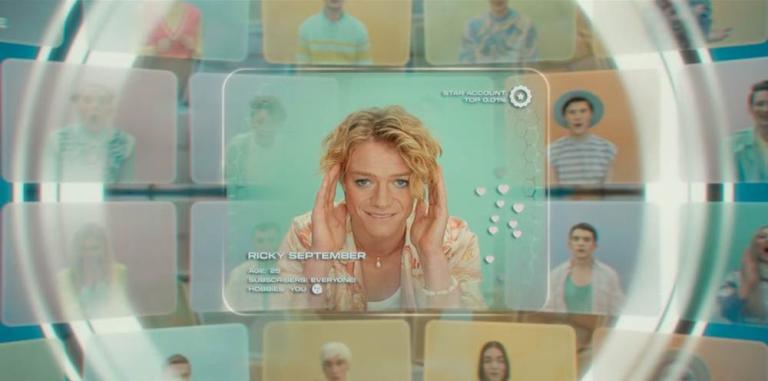 Ricky September illustrates both the superficiality of this culture and how to potentially be heroically countercultural within it. On the one hand, Ricky is a star who does nothing other than appear on screen lip synching and doing subtle dance moves accompanied by music of a bygone era. He exemplifies and perpetuates the way of life of Finetime. Yet met in person, we find that he switches his bubble off most of the time and reads. Having studied history and literature he is the only person in this society of the young who is in a position to confront the crisis. Now, whether his self-improvement would ever have been shared with and influenced others had this crisis not arisen is a question worth asking. Nevertheless, the episode asks the question of what it is worth spending your time on.
Ricky September illustrates both the superficiality of this culture and how to potentially be heroically countercultural within it. On the one hand, Ricky is a star who does nothing other than appear on screen lip synching and doing subtle dance moves accompanied by music of a bygone era. He exemplifies and perpetuates the way of life of Finetime. Yet met in person, we find that he switches his bubble off most of the time and reads. Having studied history and literature he is the only person in this society of the young who is in a position to confront the crisis. Now, whether his self-improvement would ever have been shared with and influenced others had this crisis not arisen is a question worth asking. Nevertheless, the episode asks the question of what it is worth spending your time on.
Many pursue university degrees in fields of study that are supposed to lead to high-paying jobs. The long-term goal is to work only a couple of hours each day and have abundant free time. That’s the world of Finetime. Yet people often have no idea what they want that free time for. They just know work is “boring.” Free time spent in mindless frivolity is not as personally rewarding, nor as potentially useful, as learning to fall in love with history, knowledge, exploration, and the pursuit of understanding.
I have a draft blog post that I will return to soon about my particular field within the humanities and the liberal arts and its value. Studying religion or pursuing computer science, engineering, or medicine aren’t either/or options. By all means include a major that is likely to lead to a safe and stable source of income. But pursue being well rounded and broadly educated. Narrow education will never prepare you adequately for an unforeseeable crisis (by which I don’t just mean human-eating giant slugs brought into the city by a rogue AI that is so fed up with the inane chatter of human beings that it decides to kill these taskmasters).
The moment when he gets a connection to the Homeworld and sees the screen showing Homeworld population zero, a slug visible, is chilling. Clearly they had the same technology and presumably the AI that decided these insipid human overlords need to be eliminated was as much present there as on Finetime.
Lindy seems throughout most of the episode like an annoying but tragic character, condescendingly calling someone who doesn’t know about life on Finetime a child and an idiot, while she herself is incapable of walking without the guidance of her bubble. Doctor Who often shows such characters subverting expectations and being redeemed in the end.
Her betrayal of Ricky is the perfect segue to the final act of the episode. When the Doctor offers to take the survivors of the slugpocalypse to another world where they will be safe, they reject his offer. The reason: their “God-given duty to maintain the standards of Finetime.” One of the survivors says, “If you will turn away ladies, before you’re contaminated.” That’s when we realize what had only been implicit throughout the episode until now, namely that this racist society had created its own (pale blue) dot that was a bubble of racial sameness, something that doesn’t occur naturally but which is only achievable through deliberate elimination of those who do not conform to a particular notion of ethnic purity. Everyone on Finetime is white European of the same sort idealized by the Nazi eugenicists.
The Doctor begs them to let him save their lives. They prefer arrogant self-sufficiency even though they never would have made it there on their own. It is rather like the wealthy white Europeans who plundered and enslaved and then pretend that they are self-made people in a self-sufficient culture and economy.
And so an episode that was already a poignant commentary on our technological bubbles had as its twist at the end a message about our ideological bubbles, many of which are connected with bubbles of racism and hate.
What did you think of “Dot and Bubble”? Did it make its points effectively while still telling a compelling story? Were the dots, seeking to eliminate the racist people of this world and their Homeworld, the villains, the true heroes of the story, a bit of both, or neither? If Ricky September hadn’t been killed, would he have proven to be just as racist as the other characters? Please share your thoughts about this episode in the comments!
Doctor Who – “Dot and Bubble” Review – Who’s the Real Monster Here?


